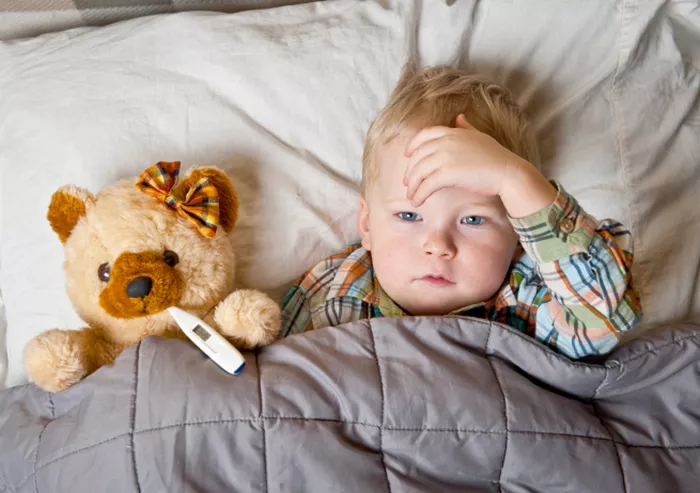Welcoming a newborn into the world is an incredible and life-changing experience, filled with both joy and uncertainty. As new parents, you want to ensure your baby is always comfortable and healthy. One of the most common concerns is whether your newborn is too cold. Babies can’t tell us when they’re feeling chilly, so it’s up to us to keep an eye on their comfort levels.
Understanding Newborn Temperature Regulation
Why Newborns Are More Susceptible to Cold?
Newborns have a limited ability to regulate their body temperature due to their small size and immature metabolic systems. Unlike adults, babies have less body fat to insulate them and are more prone to temperature fluctuations. Their skin is also thinner, which can make them more sensitive to changes in the environment.
Normal Temperature Range for Newborns
A typical newborn’s body temperature should be between 97.7°F (36.5°C) and 99.5°F (37.5°C). Temperatures outside this range may indicate that your baby is either too hot or too cold. It’s important to check your baby’s temperature regularly, especially if you suspect they might be uncomfortable.
See Also:What to Do When Newborn Won’t Sleep
Signs Your Newborn Might Be Cold
1. Cold Hands and Feet
One of the most noticeable signs that your newborn might be cold is if their hands and feet feel cool to the touch. While it’s normal for a baby’s extremities to be cooler than the rest of their body, consistently cold hands and feet can indicate that your baby needs more warmth.
2. Cool or Pale Skin
If your baby’s skin feels cool or looks pale, it could be a sign that they’re too cold. Gently place your hand on their back or chest to check their overall body temperature. If their skin feels noticeably cooler than usual, it’s time to take action.
3. Shivering
Unlike older children and adults, newborns rarely shiver when they’re cold. Instead, they may become fussy or restless. If you notice unusual behavior and suspect your baby might be cold, check their temperature and adjust their clothing or environment as needed.
4. Changes in Crying Patterns
A sudden change in your baby’s crying patterns can also be a clue. If your baby cries more than usual and you’ve already ruled out other causes such as hunger or a dirty diaper, they might be feeling cold. Try wrapping them in a warm blanket and see if their crying subsides.
5. Difficulty Feeding or Latching
If your baby is having trouble feeding or latching onto the breast or bottle, it could be due to discomfort from being cold. A chilly baby may be too distracted or uncomfortable to feed properly. Ensure they’re warm and cozy before attempting to feed them.
Tips for Keeping Your Newborn Warm
1. Dress Your Baby in Layers
Layering is a practical way to keep your baby warm. Dress them in a onesie or a long-sleeve bodysuit, followed by a warm sleeper or sleep sack. You can easily add or remove layers to adjust their temperature as needed.
2. Use a Room Thermometer
Keep the room where your baby sleeps at a comfortable temperature, ideally between 68°F (20°C) and 72°F (22°C). A room thermometer can help you monitor the temperature and ensure it stays within a safe range.
3. Swaddle Your Baby
Swaddling can provide extra warmth and comfort for your newborn. Use a soft, breathable swaddle blanket to wrap your baby snugly, making sure their face remains uncovered to avoid overheating.
4. Keep Your Baby Close
Skin-to-skin contact is not only beneficial for bonding but also helps regulate your baby’s temperature. Holding your baby close or using a baby carrier can provide warmth and comfort.
5. Check for Drafts
Ensure your baby’s sleeping area is free from drafts. Close any windows and doors that may let in cold air, and use a draft blocker if necessary.
When to Seek Medical Advice
1. Persistent Cold Symptoms
If your baby continues to show signs of being cold despite your efforts to warm them up, it’s essential to consult with a healthcare provider. Persistent cold symptoms could indicate an underlying issue that needs medical attention.
2. Unusual Behavior
If your baby exhibits unusual behavior, such as extreme fussiness or lethargy, and you suspect they might be cold, seek medical advice to rule out any serious conditions.
Conclusion
Keeping a newborn warm and comfortable is a crucial part of parenting. By understanding the signs that your baby might be cold and knowing how to address them, you can ensure that your little one stays cozy and content. Remember, every baby is different, and it’s important to trust your instincts and seek medical advice if you have any concerns. With these tips and insights, you’ll be well-equipped to keep your newborn warm and happy, ensuring a more enjoyable and stress-free parenting experience.
Related articles:
Parent’s Manual: When to Start Tummy Time with Newborns?
How to Clear a Stuffy Nose in Newborns?
How to Treat a Cold in a Newborn: A Comprehensive Guide


